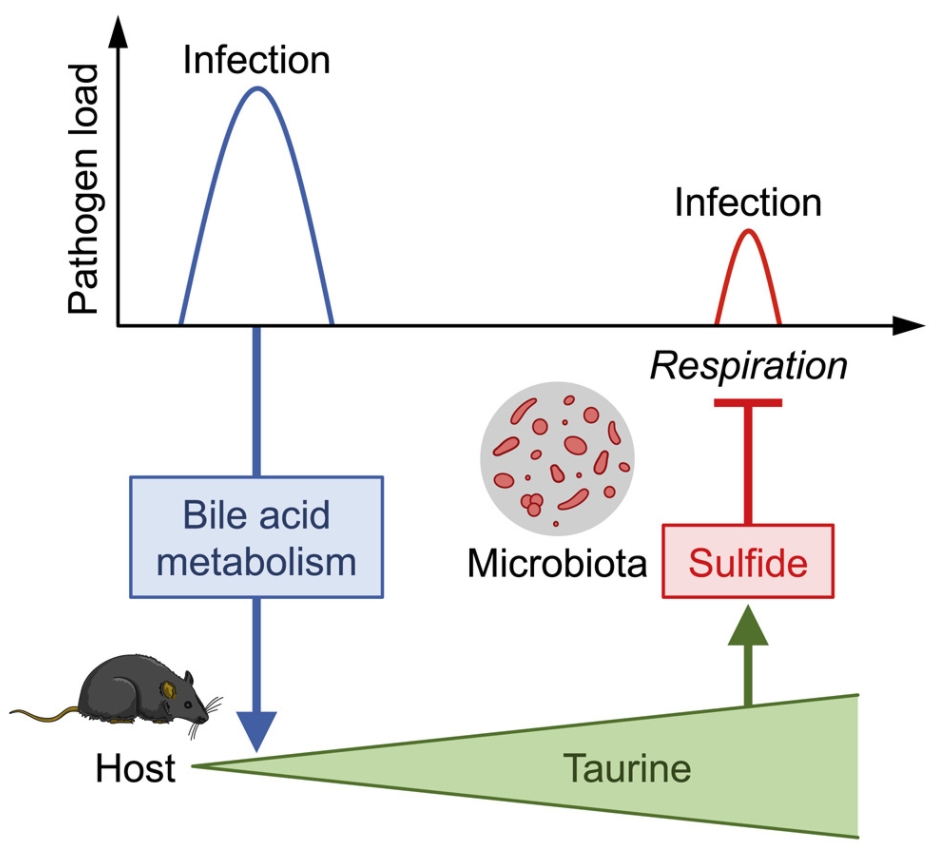Infection trains the host for microbiota-enhanced resistance to pathogens
Apollo Stacy Cell 15 January 2021
Highlights
• Prior gut infection increases the microbiota’s resistance to subsequent infection
• Infection induces host taurine production and the expansion of taurine utilizers
• The gut microbiota converts taurine to sulfide, inhibiting pathogen respiration
• Sulfide sequestration unleashes endogenous respirers in the gut microbiota
The microbiota shields the host against infections in a process known as colonization resistance. How infections themselves shape this fundamental process remains largely unknown. Here, we show that gut microbiota from previously infected hosts display enhanced resistance to infection. This long-term functional remodeling is associated with altered bile acid metabolism leading to the expansion of taxa that utilize the sulfonic acid taurine. Notably, supplying exogenous taurine alone is sufficient to induce this alteration in microbiota function and enhance resistance. Mechanistically, taurine potentiates the microbiota’s production of sulfide, an inhibitor of cellular respiration, which is key to host invasion by numerous pathogens. As such, pharmaceutical sequestration of sulfide perturbs the microbiota’s composition and promotes pathogen invasion.
Together, this work reveals a process by which the host, triggered by infection, can deploy taurine as a nutrient to nourish and train the microbiota, promoting its resistance to subsequent infection.














